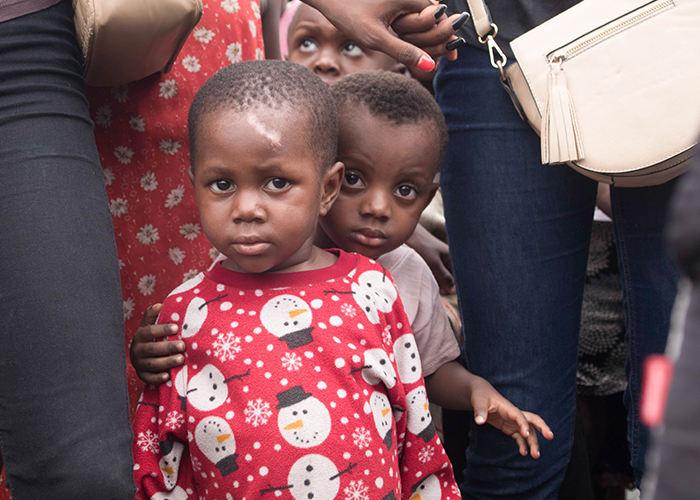Hey there, fellow journeyers through life’s twists and turns! Today, let’s delve into a topic that’s as common as the air we breathe yet as intricate as the human psyche itself: stress and self-doubt. Yep, those pesky little demons that seem to find a way into our minds when we least expect them. But fear not, because amidst the chaos of our thoughts, there’s a beacon of hope shining brightly: The Voice of Widows. Let’s be real here – life can throw some seriously tough stuff our way. Losing a loved one, navigating through grief, handling responsibilities – it’s enough to make even the strongest among us feel like we’re wading through treacle. And in those moments, stress can rear its ugly head, whispering doubts into our ears like a mischievous imp. But here’s the thing – you’re not alone. Nope, not by a long shot. Because tucked away in the vast corners of the internet lies a haven for those who know the struggles all too well: The Voice of Widows. This organization isn’t just about offering support to those who have lost their partners; it’s about building a community, a family even, where understanding reigns supreme. See, when you’re dealing with stress and self-doubt, having a support system can make all the difference. It’s like having a safety net to catch you when you feel like you’re falling. And that’s exactly what The Voice of Widows provides – a safety net woven from empathy, compassion, and shared experiences. Through their various programs, support groups, and resources, The Voice of Widows isn’t just helping people cope with the challenges they face; they’re empowering them to rise above them. Because let’s face it, life’s too short to let stress and self-doubt hold us back from living our best lives. So, the next time you find yourself grappling with those pesky demons, remember this: you’re stronger than you think, and you’re never alone. Reach out, lean on your community, and together, we’ll navigate the stormy seas of life – one wave at a time.
The Unspoken Truth: Why Widows Often Choose Not to Remarry
In a world where love stories are celebrated and fairy tales promise happily ever afters, there exists a silent reality that many are hesitant to acknowledge: the choice of widows not to remarry. It’s a topic often veiled in societal assumptions and misconceptions. But behind closed doors and within the heart of every widow lies a story untold, a narrative that transcends cultural norms and societal pressures. As an advocate for widows’ voices, I’ve had the privilege of delving into these stories through my work with The Voice of Widows, an organization dedicated to amplifying their experiences and advocating for their rights. The decision not to remarry isn’t born out of a lack of desire for companionship or love. It’s a deeply personal choice, shaped by a myriad of factors unique to each individual. For many widows, the pain of losing a spouse runs deep, leaving an indelible mark on their hearts and souls. The thought of opening themselves up to the possibility of love again can be daunting, as it means confronting the fear of experiencing such loss once more. Moreover, societal expectations and stigmas surrounding widows often compound this reluctance to remarry. In many cultures, widows face ostracization, discrimination, and even condemnation if they choose to pursue romantic relationships after the loss of their spouse. They may be seen as betraying the memory of their late partner or deemed unfit for remarriage due to outdated beliefs and traditions. Financial considerations also play a significant role in the decision-making process. In some cases, widows may find themselves thrust into newfound responsibilities and challenges following the death of their spouse. They become the sole breadwinners, caregivers, and decision-makers for their families. The prospect of navigating these responsibilities alone can make the idea of remarriage seem more like a burden than a blessing. Furthermore, for widows who have children, the dynamics of remarriage become even more complex. There’s the concern of how a new partner will integrate into the family dynamic and the impact it will have on the children’s lives. The fear of disrupting the delicate balance they’ve worked so hard to maintain can outweigh any potential benefits of remarriage. But amidst these challenges and complexities, it’s essential to recognize that the choice not to remarry is not a sign of weakness or failure. It’s a testament to the resilience, strength, and autonomy of widows everywhere. They have weathered the storm of grief and loss and emerged on the other side with a newfound sense of self-awareness and empowerment. At The Voice of Widows, we strive to create a supportive and inclusive community where widows feel heard, valued, and understood. Through our advocacy efforts, we aim to challenge societal norms and dismantle the barriers that prevent widows from living their lives on their own terms. We believe that every widow deserves the right to choose her own path, whether that includes remarriage or not. So the next time you encounter a widow who has chosen not to remarry, instead of passing judgment or making assumptions, take a moment to listen to her story. Behind her decision lies a wealth of wisdom, strength, and courage that deserves to be celebrated and honored. And through organizations like The Voice of Widows, we can ensure that every widow’s voice is heard and her choices respected.
Embracing the Duality of Living: A Reflection from The Voice of Widows
In the intricate tapestry of life, there exists a profound duality that often goes unnoticed amidst the hustle and bustle of our daily existence. It’s the delicate balance between joy and sorrow, light and darkness, hope and despair. As humans, we are intimately acquainted with this dual nature, navigating its complexities with every breath we take. At The Voice of Widows, an organization dedicated to supporting and empowering widows through their journey of loss and resilience, we witness firsthand the stark contrast between the fragility of life and the resilience of the human spirit. In our community, widows from all walks of life come together to share their stories, finding solace in the collective understanding of their shared experiences. Living with loss teaches us to embrace the duality of existence in its entirety. We learn to cherish the moments of joy, no matter how fleeting, while also acknowledging the depths of sorrow that accompany grief. It’s a journey marked by both pain and healing, sorrow and laughter, darkness and light. In the depths of grief, it can be easy to succumb to the darkness, to let the weight of loss overshadow every aspect of our being. But within the heartache lies a glimmer of hope, a reminder that even in our darkest moments, there is the potential for growth and renewal. Through the work of The Voice of Widows, we strive to amplify this message of resilience and hope. We provide a platform for widows to not only share their pain but also celebrate the strength and resilience that emerge from their struggles. In doing so, we honor the duality of living – the simultaneous existence of joy and sorrow, love and loss. As we navigate the complexities of life, let us remember that it is our ability to embrace the duality of living that defines our humanity. Through both the highs and lows, we find meaning and purpose, forging connections that transcend the boundaries of grief and loss. In the end, it is our shared experiences that unite us, reminding us that no matter how different our paths may be, we are all bound together by the universal truths of life and death. And through the duality of living, we find the courage to embrace both the beauty and the pain of our existence, knowing that it is in the balance of these opposing forces that we truly find ourselves.
Finding Hope in the Company of Others: The Voice of Widows
In the quiet corners of our lives, there exists a unique kind of strength that emerges from the depths of loss. It’s a strength born not from the absence of pain but from the courage to confront it, to navigate through the labyrinth of grief, and to emerge, albeit scarred, on the other side. Widows and widowers understand this journey all too well, for theirs is a path marked by profound sorrow and profound resilience. In the midst of this journey, there exists a beacon of hope – a gathering, a community known as The Voice of Widows. Here, amidst shared experiences and kindred spirits, widowed individuals find solace, support, and the gentle reassurance that they are not alone. Imagine stepping into a room filled with people who understand the intricate web of emotions that accompany loss. There’s a sense of camaraderie, an unspoken bond that transcends words. Each person carries within them a story – stories of love and loss, of laughter and tears, stories that intertwine to form a tapestry of shared humanity. As conversations ebb and flow, there’s a palpable shift in the atmosphere – a subtle yet powerful transformation fueled by empathy and understanding. In this space, vulnerability is not a weakness but a badge of honor, a testament to the depth of one’s capacity to love and to endure. The Voice of Widows provides a sanctuary for those grappling with the complexities of grief. Through support groups, counseling sessions, and community events, individuals find the courage to navigate the uncharted waters of life after loss. Here, they discover that healing is not a linear journey but a mosaic of moments – small victories and setbacks, moments of clarity and moments of confusion – all contributing to the gradual unfolding of a new chapter. But perhaps the most profound aspect of The Voice of Widows is the cultivation of hope. In the company of others who have walked a similar path, widowed individuals find reassurance that joy can coexist with sorrow, that light can pierce through the darkest of nights. Through shared stories of resilience and triumph, they glean glimpses of a future filled with possibility – a future where love, though transformed, remains a guiding force. In the embrace of this community, widowed individuals discover that hope is not an abstract concept but a tangible presence, woven into the fabric of human connection. It’s the reassuring hand on a shoulder, the shared laughter over fond memories, the collective sigh of relief that comes with knowing that they are understood, accepted, and cherished. As the gathering draws to a close and individuals begin to disperse, there’s a sense of renewal in the air – a quiet yet unmistakable resolve to continue moving forward, one step at a time. For in the embrace of The Voice of Widows, they have found not only solace but also strength – strength to honor the past, embrace the present, and embrace the future with open hearts and open minds. So, to all those who have experienced the profound loss of a spouse, know that you are not alone. Within the walls of The Voice of Widows, there exists a community ready to walk alongside you, to listen, to support, and to remind you that even in the darkest of moments, hope endures.
Empowering Widows Worldwide: The Sisterhood of Widows and VOW’s Journey of Support and Empowerment
Grief is a deeply personal journey that often feels isolating, especially for widows who are navigating life after the loss of a spouse. The Sisterhood of Widows, along with its partner program We Voice Of Widows (VOW), seeks to provide a supportive and empowering platform for widows, orphans, and divorced individuals. At the heart of this initiative is the belief that no one should have to face grief alone, and that there is strength in unity and community support. Founded by Dr. Bilal Ahmad Bhat, a renowned entrepreneur and advocate for widows’ rights, the Sisterhood of Widows and VOM aim to create a safe space where individuals can find resources, guidance, and solidarity. Dr. Bhat’s vision stems from his own personal experiences and the recognition of the challenges widows often face, from financial struggles to emotional wellbeing. Central to the Sisterhood of Widows is the 28 Credentials of Entrepreneurship (28COE), a comprehensive program designed to empower widows with the skills, knowledge, and resources needed to rebuild their lives. This program encompasses various areas such as financial literacy, personal development, and career guidance. By equipping widows with entrepreneurial skills, the 28COE aims to foster independence, resilience, and self-sufficiency. One of the key aspects of the Sisterhood of Widows and VOM is the global network of partners and supporters. Through collaborations with organizations, businesses, and individuals around the world, the initiative expands its reach and impact, providing widows with access to diverse resources and opportunities. These partnerships also facilitate advocacy efforts, raising awareness about the challenges widows face and advocating for their rights and support systems. The Sisterhood of Widows and VOW offer a range of resources and services, including online support groups, counseling services, financial planning workshops, educational programs, and community events. These initiatives are tailored to meet the unique needs of widows, ensuring they have the tools and support to navigate their grief journey and rebuild their lives with resilience and hope. Through empowerment, education, and community-building, the Sisterhood of Widows and VOW strive to create a brighter future for widows and their families. By fostering a sense of belonging, empowerment, and solidarity, this initiative aims to transform grief into a journey of growth, strength, and renewed purpose for widows around the world.
Millions Of Child Widows: Forgotten, Invisible, And Vulnerable
Child widowhood is a deeply troubling and often overlooked issue that affects millions of young girls around the world. These vulnerable individuals face a unique set of challenges stemming from the loss of their spouses at a tender age. In this article, we delve into the complex realities of child widows, shedding light on their experiences, vulnerabilities, and the urgent need for support and advocacy. The Plight of Child Widows Child widowhood refers to the situation where girls, typically under the age of 18, lose their husbands due to various reasons such as early marriage, conflict, or disease. This loss plunges them into a world of hardship, stigma, and marginalization. Many child widows are left without adequate support systems, education, or economic opportunities, making them extremely vulnerable to exploitation, abuse, and poverty. Forgotten and Invisible One of the most distressing aspects of child widowhood is the invisibility of these young girls within society. They often suffer in silence, hidden from public view and denied basic rights and protections. Cultural norms, discriminatory practices, and lack of awareness further compound their marginalization, leaving them isolated and voiceless. Vulnerabilities and Risks Child widows face a myriad of risks and vulnerabilities that jeopardize their well-being and future prospects. These include: Health Risks: Child widows may lack access to essential healthcare services, increasing their vulnerability to physical and mental health issues. Educational Barriers: The loss of a spouse at a young age often disrupts their education, limiting their opportunities for personal development and empowerment. Poverty and Exploitation: Many child widows live in impoverished conditions, making them susceptible to exploitation, child labor, and early marriage. Social Stigma: Widowed girls may face stigma, ostracism, and discrimination within their communities, leading to further isolation and psychological distress. Advocating for Change Addressing the plight of child widows requires concerted efforts at the local, national, and global levels. Advocacy initiatives, policy reforms, and community-based interventions can make a significant difference in improving the lives of these vulnerable girls. Key areas of focus include: Legal Protections: Enacting and enforcing laws that protect the rights of child widows, including provisions for education, healthcare, and social support. Education and Empowerment: Promoting access to quality education, vocational training, and life skills programs to empower child widows and enhance their prospects for a brighter future. Healthcare Services: Ensuring that child widows have access to essential healthcare services, including reproductive health care, mental health support, and nutrition programs. Social Support Networks: Establishing community-based support networks, shelters, and counseling services to provide emotional, social, and economic support to child widows and their families. The Role of Entrepreneurship and Innovation Entrepreneurship and innovation can also play a vital role in addressing the challenges faced by child widows. Initiatives that promote economic empowerment, entrepreneurship training, and microfinance opportunities can enable widowed girls to become self-reliant, build resilience, and break the cycle of poverty and marginalization. Conclusion: A Call to Action The plight of millions of child widows worldwide demands urgent attention, compassion, and action. As a global community, we must raise awareness, advocate for their rights, and provide comprehensive support to ensure that these young girls are not forgotten, invisible, or left behind. By investing in their education, health, and empowerment, we can create a more inclusive and equitable world where every child, regardless of their marital status, has the opportunity to thrive and fulfill their potential.






